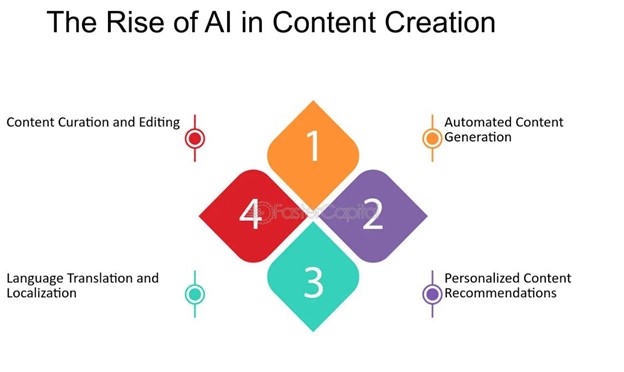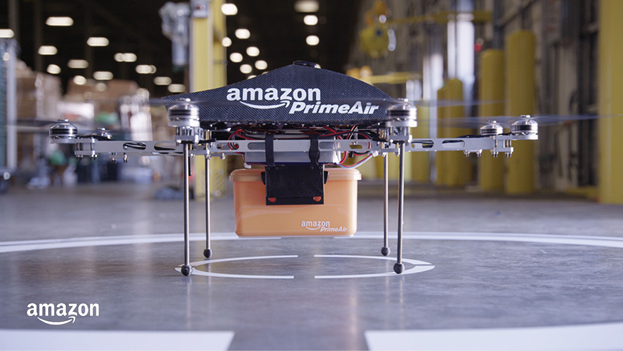The Covid-19 pandemic transformed the retail industry for good. It made e-commerce an integral part of our lives. Today, businesses of all sizes are rushing to establish their online presence, making competition within this sector fiercer than ever.
So what do these eCommerce businesses do to thrive and stay profitable?
The short answer: embrace emerging technologies, especially AI.
The global AI market is valued at over $196 billion. And according to McKinsey & Company, AI is bringing 20% additional revenue to the eCommerce industry.
The incredible technology enables eCommerce businesses to achieve an improved level of customization, personalization, and operational efficiency to compete in this increasingly competitive online world.
In this article, we will discuss what’s latest in the field of AI in eCommerce and discover how you can leverage these trends to propel your business.
Unveiling the Future of AI in E-commerce: Top Trends for 2024 and Beyond
Personalized Product Recommendations
Accenture’s report claims that 91% of customers are more likely to shop with brands that offer personalized and relevant product recommendations.
AI for product recommendations is not new. However, in the coming years, this is poised to become even more sophisticated, revolutionizing how we receive product suggestions.
Product recommendations help to significantly shape every customer’s shopping experience. When you offer tailored recommendations, you show customers that you understand their needs, tastes, and preferences. This creates a sense of trust and reliability, making the customers feel important and valued.

Source: InsideRetail
AI-powered algorithms help eCommerce businesses comprehend customer behavior. These algorithms meticulously evaluate an array of user patterns, such as previous purchases, browsing history, frequent product views, etc. to tailor product recommendations to a specific user’s preferences.
From personalized product suggestions presented in product sliders to optimal pricing strategies and even exclusive discounts, these recommendations powered by AI, possess the potential to pave an era of eCommerce that caters uniquely to the needs of each customer.
EBay is an excellent example of an e-commerce giant adept at offering meaningful customer advice and personalized recommendations. The company leverages AI to thoroughly understand each customer’s unique needs and offer expert guidance and suggestions that align with their needs.
Visual Search
The global visual search market valued at $6,660 million in 2019 is anticipated to grow to $32,984 million by 2028, rising at a CAGR of 17.5% during the forecast period.
AI-powered visual search is an upcoming eCommerce trend that enables users to quickly find products simply by capturing or uploading images. It utilizes advanced AI algorithms to analyze the visual characteristics of an image, such as its shape, color, pattern, and texture to identify similar products.
Visual search allows users to surpass text-based searches and locate products seamlessly through images. The technology transforms mobile shopping experiences, leading to a more engaging and intuitive way for customers to discover and purchase products.
As per reports, 62% of millennials desire visual search functionality while looking for products. This growing demand from consumers and the ability to drive higher engagement demonstrates that visual search is set to revolutionize how we interact with e-commerce platforms.
Retail giants such as ASOS have already implemented visual search features into their mobile apps. ASOS Style Match enables users to capture or upload images of products and quickly identify similar items.

Source: Forbes
Voice Commerce
The projected value of voice commerce transactions in 2023 was $19.4 billion (up from just $4.6 billion in 2021). And with the recent leaps in AI development, voice commerce is expected to become a full-blown trend in the upcoming years.
Voice commerce is a type of eCommerce experience that enables consumers to purchase products/services using voice commands. Designed to work with voice assistants like Amazon’s Alexa, Apple’s Siri, and Microsoft’s Cortana, it eliminates friction in the customer journey and personalizes the purchase experience for each individual.
With voice commerce, customers can quickly discover new products, compare pricing, and make purchases without manually typing in commands via search engines.
In the coming years, voice assistants are expected to evolve into smart shopping assistants, offering relevant product recommendations and offering post-purchase support. This will translate to highly satisfied customers.
Google’s Google Assistant offers a great example of voice commerce, enabling shoppers to voice a shopping request on the Google search engine.

Source: Fit Small Business
Chatbots and Virtual Assistants
Chatbots are among the key areas of growth for AI in the eCommerce landscape. Up till last year, chatbots were generating over $100 billion in eCommerce transactions.
AI-driven chatbots and virtual assistants help retailers enhance customer support and facilitate quick problem-solving. As technology is rapidly evolving, these virtual assistants are becoming more and more sophisticated.
With generative AI, chatbots are no longer restricted to mere scripted responders. They have transformed into sophisticated conversational agents that can decipher context, user sentiment, and needs. This is heralding a new era of personalized customer experiences.
Chatbots and virtual assistants can seamlessly integrate into eCommerce platforms, helping customers with instant assistance, product recommendations, and tailored customer journeys. They even offer data-driven insights that can help retailers fine-tune their marketing strategies with remarkable accuracy.
Several eCommerce brands are successfully using chatbots to enhance their customer shopping journey. For instance, Whole Foods has a virtual assistant that helps customers find accurate information about the brand’s wide range of products. It also offers a fun feature that lets users find recipes using different emojis. Simply inputting an emoji can lead users to diverse and delectable recipes.

Source: Clickz
AI-Enabled eCommerce Fraud Prevention
On average, eCommerce businesses experience $48 billion worth of fraud every year.
With online shopping becoming extremely prevalent, eCommerce fraud has also spiked. The past year alone has witnessed a 16% jump in global losses from fraudulent eCommerce practices. This has led to developments such as AI-powered fraud prevention and chargeback correction platforms. Such platforms can automatically detect deceitful practices such as fraud orders, fabrication of addresses, and other crucial information to complete online transactions.
Generative AI can easily identify patterns that distinguish a legitimate purchase from a duplicitous one. It can discern irregularities in customer behavior, browsing history, and transaction data to flag potentially fake activities that can be easily missed by human detection. By identifying such unusual patterns, it can alert businesses in real-time, enabling them to take proactive measures.
AI-powered fraud protection is anticipated to become a huge trend shortly, with an increasing number of eCommerce brands investing in it. Statistics suggest that 75% of eCommerce merchants increased their fraud prevention budgets in 2023.

Source: Statista
AI for Inventory Management
When deciphering the future AI trends in eCommerce, one cannot overlook the incredible potential of AI in advanced inventory management systems.
Traditional inventory management is a complicated task, fraught with challenges like overstocking, understocking, or inefficient logistics. However, AI systems with ML algorithms and real-time data analysis can transform inventory management.
AI systems continuously monitor customer demand patterns to forecast future sales and optimize inventory levels accordingly. They also identify external factors such as weather patterns and changing market trends to forecast demand for different products. Such information empowers online retailers to refine their buying decisions and prevent stock imbalances.

Source: Rapidops
Walmart, the leading retail giant, is utilizing AI to streamline its vast inventory network. The company leverages an AI-powered demand forecasting model that evaluates consumer behavior, historical sales data, and external factors to foresee future demand. This helps the company provide the right products, to the right customers, at the right time, reducing inventory problems and minimizing costs.
Automated Content Generation
AI-generated content refers to digital content produced using AI tools. In eCommerce, AI-generated content involves the creation of product descriptions, product images, customer reviews, email marketing campaigns, and more.
With AI tools, businesses can create massive amounts of content within minutes. For instance, if an eCommerce business has thousands of products in its catalog, it can use AI tools to generate engaging and unique descriptions for each product in a fraction of the time it would take a human writer.
Additionally, AI technologies, such as Natural Language Generation, can automatically produce content that is tailored to the needs of individual customers. They excel in processing past interactions and the browsing behavior of each individual to create content with a personalized approach. Lastly, AI tools can also generate SEO-optimized and multilingual content that enhances user engagement.
As we look into the future, AI-generated content is poised to become a leading trend, with businesses that leverage it gaining a significant competitive advantage.

Source: Faster Capital
Anticipating Future Developments in eCommerce: Top Predictions
Shopping in the Metaverse
The Metaverse eCommerce market is estimated to experience massive growth in the coming years, reaching a user base of 1,293 million users by 2030.
The metaverse is a virtual universe where people can interact with others and their digital surroundings in real-time.
Metaverse offers several opportunities, including the ability to shop in unique and immersive ways. It involves the use of technologies like augmented reality (AR) and virtual reality (VR) to create highly engaging and immersive experiences.
Users can virtually explore different retail stores, browse through the products, and even try them on virtually within the simulated digital environment. They can use a VR headset to visualize and interact with digital objects, ensuring a uniquely satisfying shopping experience.
For instance, metaverse shopping can enable consumers to test-drive a virtual car before purchasing it or even virtually try on makeup, accessories, and clothes to check how they look and feel.
Additionally, AI is enabling the creation of digital avatars, i.e. virtual personas to represent you. With the help of these digital avatars, consumers can enhance their shopping experience in the metaverse, using their digital avatars to guide them through the virtual stores.
Shopping in the metaverse demonstrates an exciting opportunity for retail. As the technology continues to evolve, the metaverse can truly transform eCommerce, resulting in new immersive experiences and global accessibility. No wonder forward-thinking brands like Sephora have already begun implementing cutting-edge technology. The brand allows its customers to virtually try on an extensive range of makeup products such as eyeshadows, lipsticks, and even foundation.

Source: The Verge
Drone Delivery
Experts predict that the use of drones will reach $54.6 billion in revenue by 2030, growing at a CAGR of 7.7% globally.
Drone delivery is still in its initial phase of development. However, the concept is gaining incredible traction from several eCommerce giants, thanks to the integration of AI.
AI-driven drones are quickly transforming the way goods are transported and delivered, offering unmatched speed, efficiency, and convenience. Drones equipped with AI algorithms can easily analyze vast amounts of data, such as climate conditions, traffic patterns, etc. to optimize route planning. They can adjust delivery routes in real-time and steer the drone to a safe landing place in the event of a failure or emergency.
Additionally, AI algorithms can analyze drone performance in real-time, pinpointing potential malfunctions. All this ensures that packages are delivered on time, even in case of emergencies, improving customer satisfaction.
For this reason, several big brands such as Amazon, FedEx, and UberEats have already started using drone deliveries in some regions. In the coming times, this drone adoption is expected to become a massive eCommerce trend, facilitating same-day product deliveries.

Source: Amazon
Conclusion
As AI technology continues to become more sophisticated, it will play an instrumental role in shaping the future of eCommerce. Right from facilitating a hyper-personalized shopping experience to optimizing inventory management, AI’s transformative potential in eCommerce is undeniable.
As an eCommerce business, you must leverage AI to personalize every customer touchpoint, automate mundane processes, and gain a competitive edge.
About Author

Yash Chawlani is your go-to digital marketing specialist and founder of Merlin, a performance-driven marketing agency. With over 7 years of experience, Yash has worked with some big names like Elementor, G2, and Snov, just to name a few, to boost their online presence. When he’s not diving into the latest marketing trends, you’ll either find him at the gym or on the football field.





